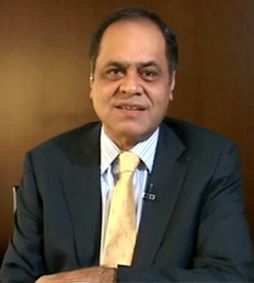Share Trading – History, Scams and Earning
Share trading, also known as stock trading or equity trading, is the process of buying and selling shares or stocks of publicly traded companies on the stock exchange. In India, share trading is regulated by the Securities and Exchange Board of India (SEBI) and the major stock exchanges include the Bombay Stock Exchange (BSE) and the National Stock Exchange (NSE). Share trading has become a popular way for individuals to generate Passive Income, but it also involves risk and requires a good understanding of the market.
Earning from share trading in India can be a lucrative opportunity, but it requires a good understanding of the market, a well-developed trading strategy, and careful research and analysis of stocks. By following the steps outlined later in the article and adhering to the tips for successful share trading, you can increase your chances of earning higher returns and minimize the risk of losses.
India’s Market Capitalization accounted for 3,121.291 USD bn in Feb 2023, compared with a percentage of 3,308.013 USD bn in the previous month. The NSE has more than 1600 companies listed on the stock exchange, while the BSE features more than 5000 companies on its exchange.
What are Nifty and Sensex?
Nifty and Sensex are benchmark index values for measuring the overall performance of the stock market. Nifty is the Index used by the National Stock exchange, and Sensex is the Index used by the Bombay Stock Exchange.
The full form of NIFTY is the National stock exchange FIFTY. It is also recognized as Nifty 50, Nifty simple, or Nifty CNX. It is a benchmark index on the NSE (National Stock Exchange) in India for large firms. It includes fifty stock exchanges that cover 23 economic sectors.
The Sensex is an acronym that stands for Stock Exchange Sensitivity Index.
The Sensex comprises 30 companies listed on the Bombay Stock Exchange (BSE) so it’s often referred to as BSE Sensex or S&P BSE Sensex. These 30 constituents of Sensex are the largest corporations. This list of 30 stocks is subject to revision by the BSE over time. Market analysts and investors use Sensex to know about overall growth, sector-specific growth, or other research.
History of share trading:
- The first stock exchange in India was established in Bombay (now Mumbai) in 1875, which eventually became the Bombay Stock Exchange (BSE). The BSE is now the oldest stock exchange in Asia and the first to be recognized by the Indian government under the Securities Contracts (Regulation) Act in 1956.
- In 1992, the National Stock Exchange (NSE) was established as a computer-based trading platform to complement the BSE’s traditional trading system. The NSE introduced electronic trading, which eventually led to the phasing out of the traditional ‘open outcry’ trading system.
Movers and Shakers of the Share Trading Industry:




- Rakesh Jhunjhunwala: Often referred to as the ‘Warren Buffett of India,’ Jhunjhunwala is a renowned stock market investor and trader. He is known for his long-term investment strategy and his expertise in identifying high-growth companies. Jhunjhunwala’s net worth is estimated to be over $4 billion.
- Radhakishan Damani: Damani is the founder of DMart, a chain of supermarkets in India, and is also a successful stock market investor. He is known for his value investing strategy and has been named one of the richest people in India by Forbes magazine.
- Ramesh Damani: Ramesh Damani is a stock market investor and trader, known for his expertise in identifying growth stocks. He is also a television personality, having appeared on various financial news programs in India.
- Nimesh Kampani: Kampani is the founder of JM Financial, a financial services company that offers investment banking, asset management, and other services. He is known for his contributions to the development of the Indian financial services industry and has received several awards for his work.
These are just a few examples of the many successful people who have made their mark in the Indian share trading industry.
Scams that Shook the Indian Share Market

There have been several scams that have hit the Indian stock market in recent years, and some of the most notable ones are:
- Harshad Mehta Scam: The Harshad Mehta scam, also known as the Securities Scam of 1992, is one of the biggest scams in the history of the Indian stock market. Harshad Mehta, a stockbroker, used a loophole in the banking system to manipulate the stock market and made a profit of over Rs. 4,000 crores ($550 million) in a few months. However, the scam was exposed, and Mehta was arrested and sentenced to five years in prison.
- Satyam Scam: The Satyam scam, also known as India’s Enron, was a corporate fraud that came to light in 2009. Ramalinga Raju, the founder and chairman of Satyam Computer Services, inflated the company’s revenue and profits to make it look more profitable than it actually was. The scam was exposed, and Raju and his brother were arrested and sentenced to prison.
- NSEL Scam: The National Spot Exchange Limited (NSEL) scam is a commodities scam that came to light in 2013. The exchange, which was promoted by Financial Technologies India Limited (FTIL), was found to be illegally raising money from investors through fraudulent contracts. The scam led to losses of over Rs. 5,600 crores ($765 million) for investors.
- Saradha Scam: The Saradha scam was a Ponzi scheme that operated in West Bengal, India. The scheme was run by the Saradha Group, which promised high returns to investors on their investments in various companies. However, the group did not invest the money in any real business and instead used it for their own personal gain. The scam led to losses of over Rs. 2,500 crores ($341 million) for investors.
- Punjab National Bank Scam: The Punjab National Bank (PNB) scam is one of the biggest banking scams in India. The scam came to light in 2018 when it was discovered that the bank had been defrauded of over Rs. 13,000 crores ($1.8 billion) by diamond merchants Nirav Modi and Mehul Choksi. The duo had used fake letters of credit to obtain loans from the bank, which they never intended to repay.
The persons involved in these scams include stockbrokers, company executives, and businessmen who used fraudulent means to manipulate the stock market, inflating the profits of their companies, or defraud investors. Many of these individuals have been arrested and sentenced to prison for their involvement in these scams.
You can also Earn from Share Trading:

- Learn about the market: Before you start investing in shares, it is essential to learn about the market and how it works. This includes understanding the basics of stocks, how the stock market operates, and the various factors that can affect the market.
- Develop a trading strategy: Once you have a good understanding of the market, you need to develop a trading strategy that suits your investment goals and risk tolerance. This may involve deciding on the type of stocks to invest in, the amount of capital you want to allocate to each trade, and the time frame for holding your stocks.
- Open a trading account: To start trading in shares, you need to open a trading account with a stockbroker. There are several stockbrokers in India that offer online trading platforms, which allow you to buy and sell shares from the comfort of your home.
- Research and analyze stocks: Before investing in any stock, it is important to research and analyze the company’s financials, market trends, and other relevant factors. This can help you make informed decisions and minimize the risk of losses.
- Place your trades: Once you have identified the stocks you want to invest in, you can place your trades through your trading account. You can either place a market order, which buys or sells the stock at the current market price, or a limit order, which allows you to set a specific price at which you want to buy or sell the stock.
- Monitor your investments: It is important to regularly monitor your investments and track the performance of the stocks in your portfolio. This can help you identify any trends or changes in the market that may require you to adjust your trading strategy.
Pro Tips for successful share trading:
- Diversify your portfolio: Investing in a diversified portfolio of stocks can help reduce the risk of losses and increase the chances of earning higher returns.
- Stay disciplined: Stick to your trading strategy and avoid making impulsive decisions based on emotions or short-term market trends.
- Keep learning: The stock market is constantly evolving, so it is important to stay up-to-date with the latest trends and news that can affect your investments.
- Manage your risk: Always have a stop-loss in place, which is a predetermined level at which you will sell a stock to limit your losses.

